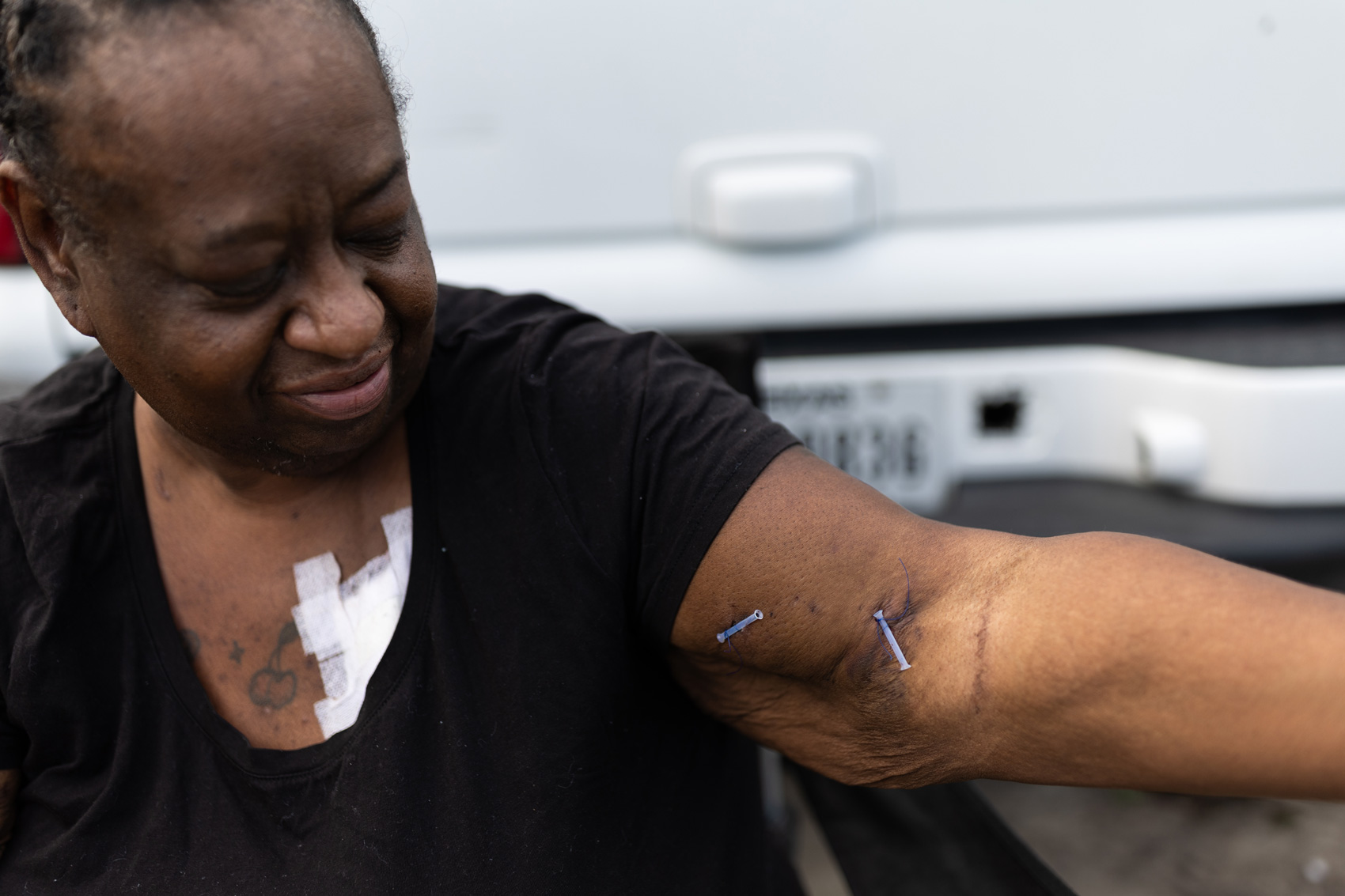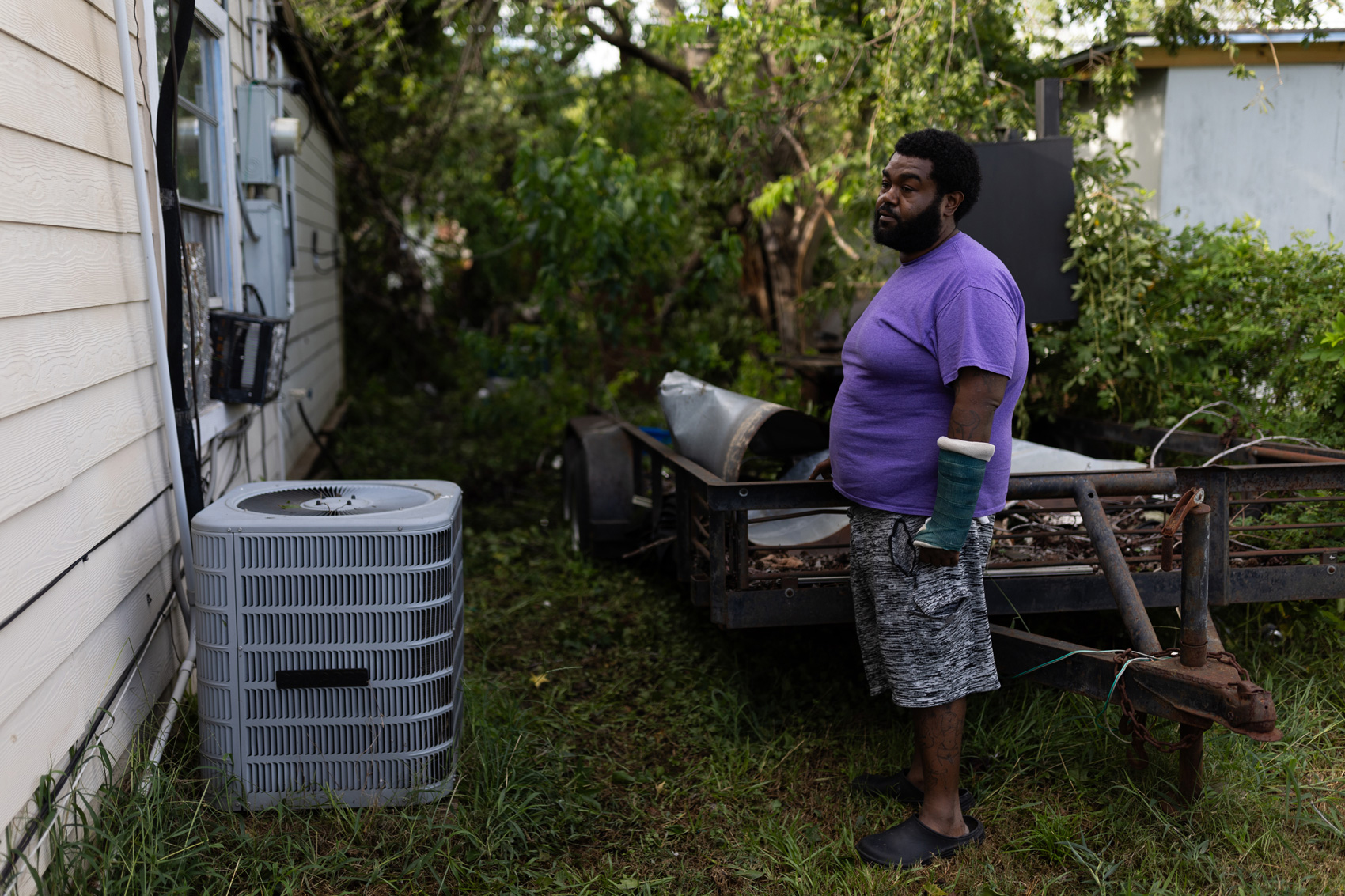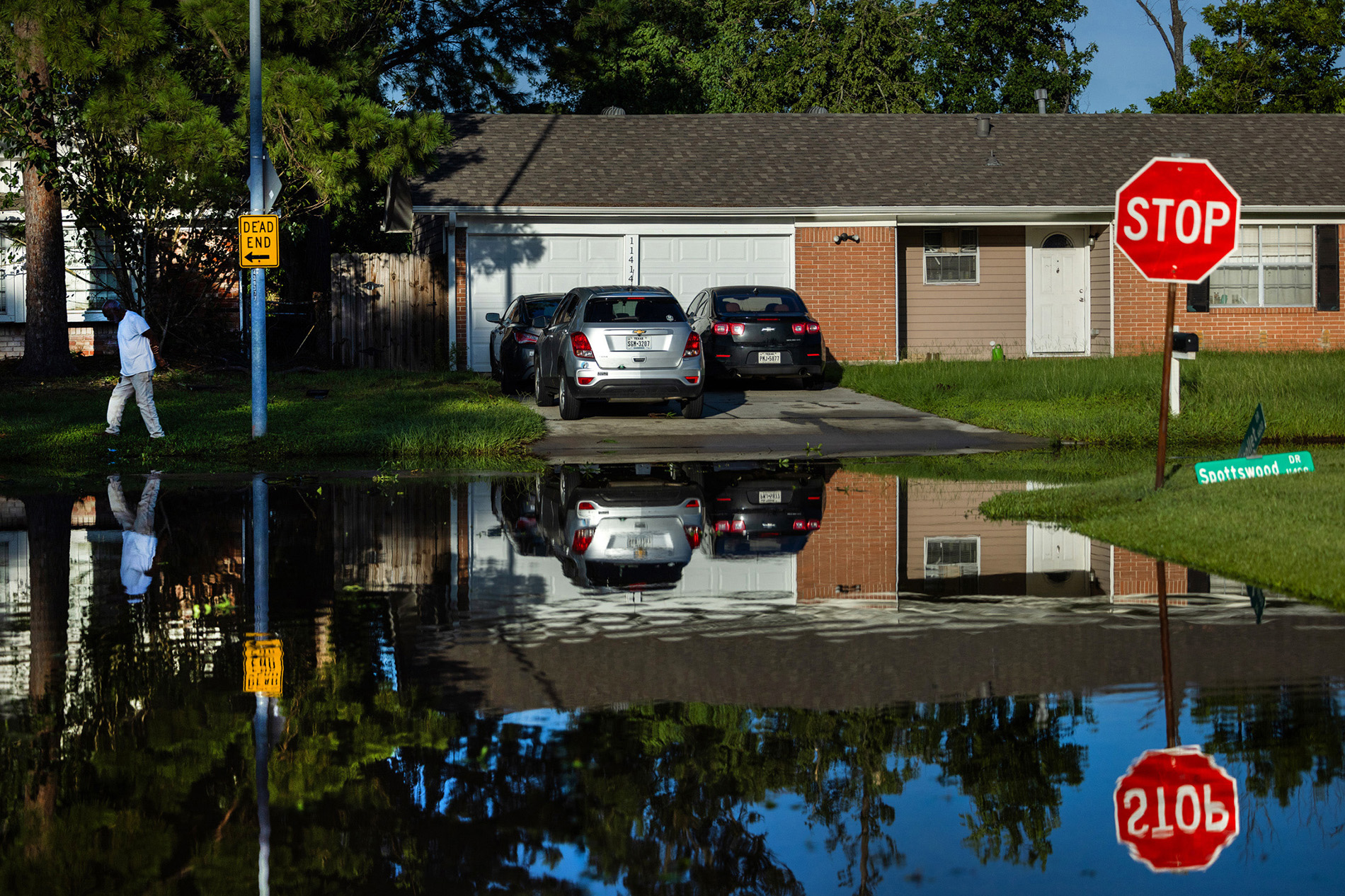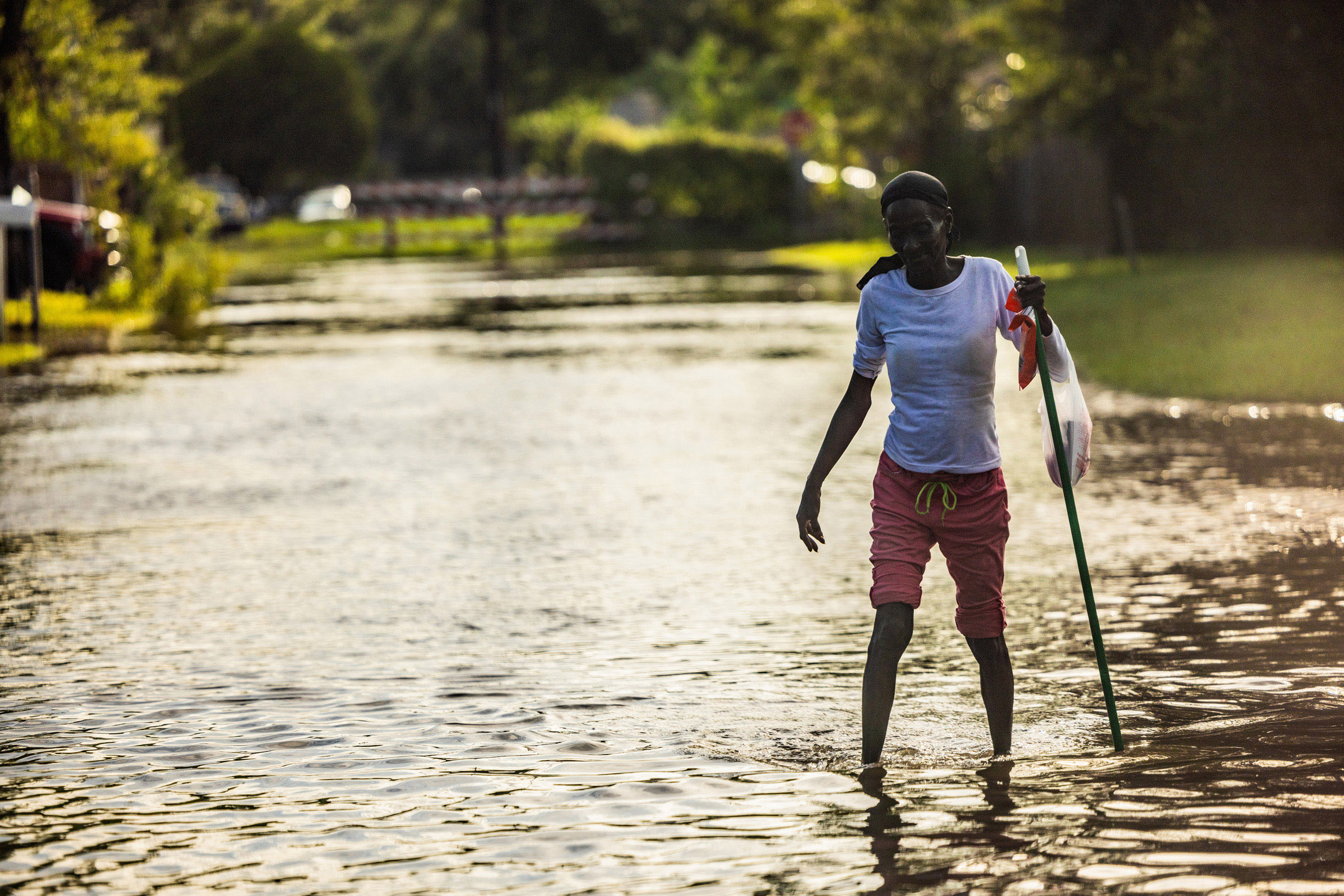|
Getting your Trinity Audio player ready...
|
Hours after Hurricane Beryl ripped through her Houston neighborhood, Jennifer Cormier sat in her driveway and wondered how she would make it to her next dialysis appointment.
Knee-high brown water, thick with motor oil and debris, choked the street in front of her. During Beryl’s peak downpours earlier Monday , the water crept several feet further up her driveway, nearly reaching the foundation of her house.
Cormier was scheduled to receive dialysis – a treatment people with kidney failure need to survive – earlier that day. But she knew the stents in her chest and arm needed to stay dry. “There’s no way I can be venturing out in this water, no way,” she said.
Beryl killed at least seven people and knocked out power for 2.5 million more when it tore through Texas’s largest metro area Monday morning. Like Harvey before it, the hurricane hit some Houstonians harder than others.
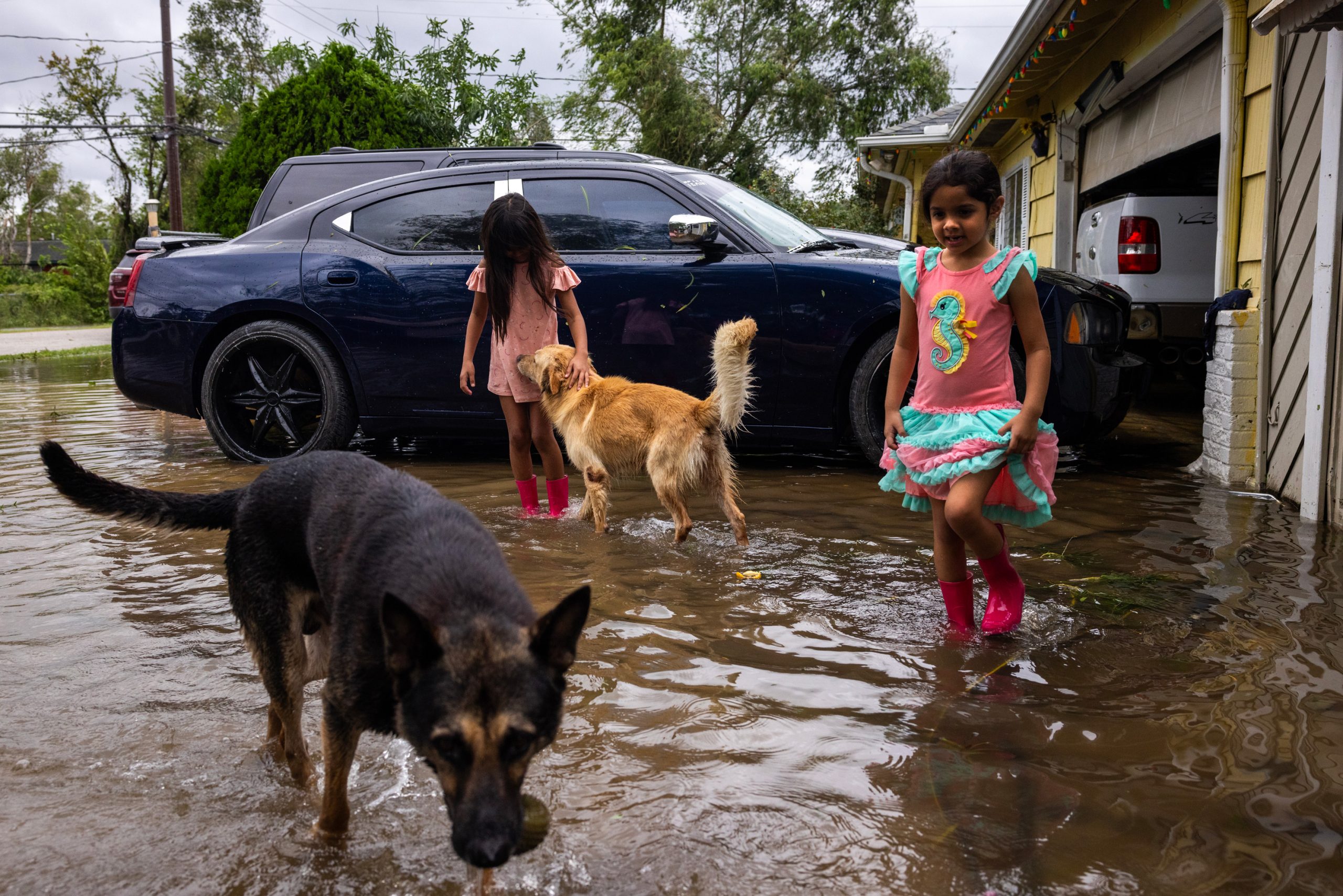
more beryl coverage
Poor drainage leaves northeast Houston residents with full ditches, flooded homes after Beryl
by Elena Bruess
After fourteen years living in their family home in north Houston’s Little East York neighborhood, Cormier and her sons Devon and Dougie have come to expect this. “We’ve always had to worry about water, always,” Devon said. “That was true before Harvey and it’s still like that.”
Historically Black and brown neighborhoods like the Cormier’s suffered especially devastating flooding from Hurricane Harvey in 2017. The city knew since at least 2014 that poor drainage infrastructure in neighborhoods of color made them especially vulnerable to catastrophic flooding, but still took no action.
Six years later, Beryl’s floodwater’s rose, Jennifer Cormier couldn’t help but think of Harvey, when she’d found herself stranded in her home, surrounded by flooded streets, unable to reach her local dialysis center and unsure when the waters would recede.
“Nothing’s changed,” she said. “In all these years nothing’s changed.”
Cormier’s regular dialysis center texted her Monday afternoon to reschedule her next appointment to Wednesday. She doesn’t know how she’ll get there.
Meanwhile, the Cormier’s power remains out – as it is for everyone for several blocks in every direction – and severed power lines hang just above knee-high flood water in the Cormier’s side yard.
“If you go on south though, where there’s money, it’s not like this,” Devon said, before echoing his mom’s refrain: “Nothing’s changed, really.”


